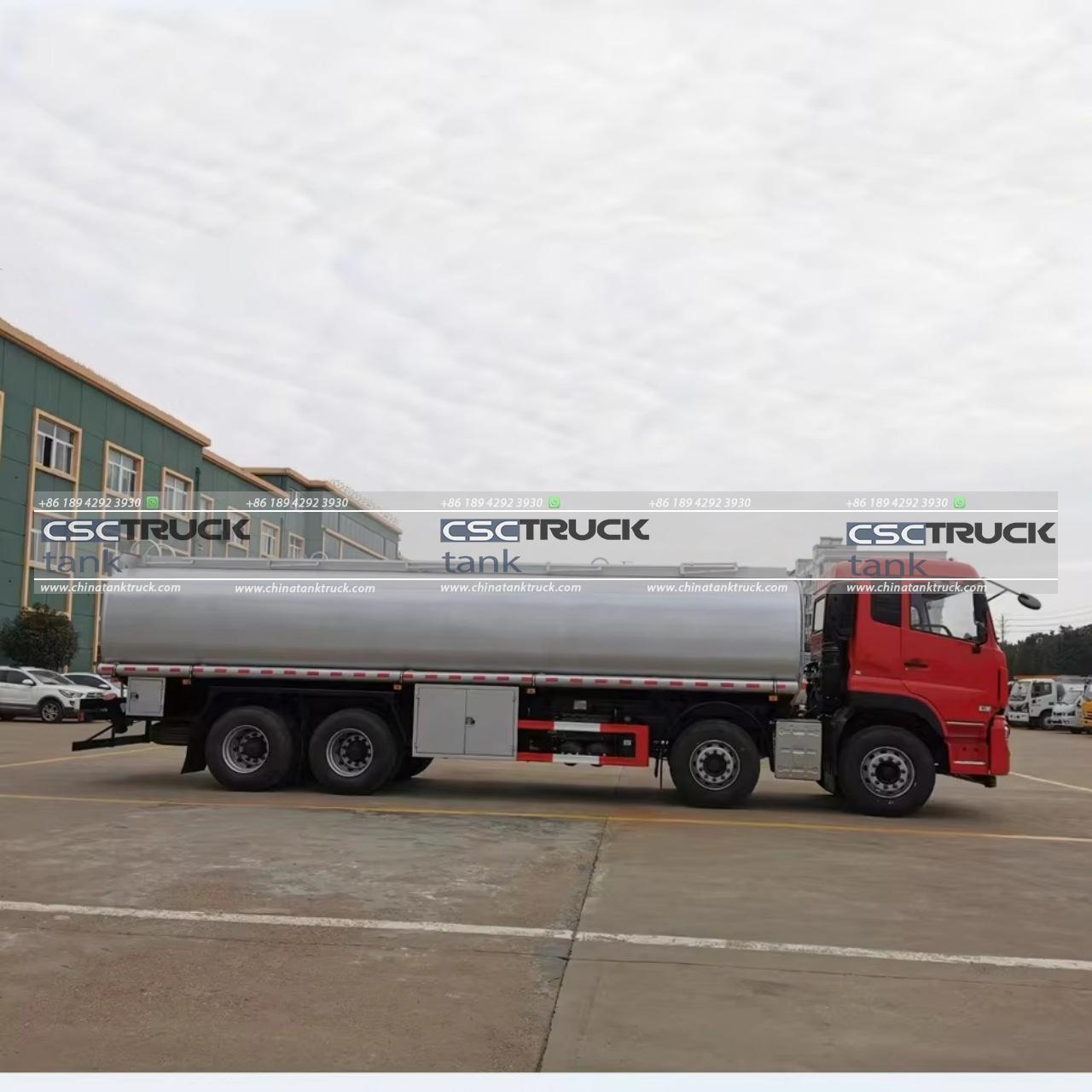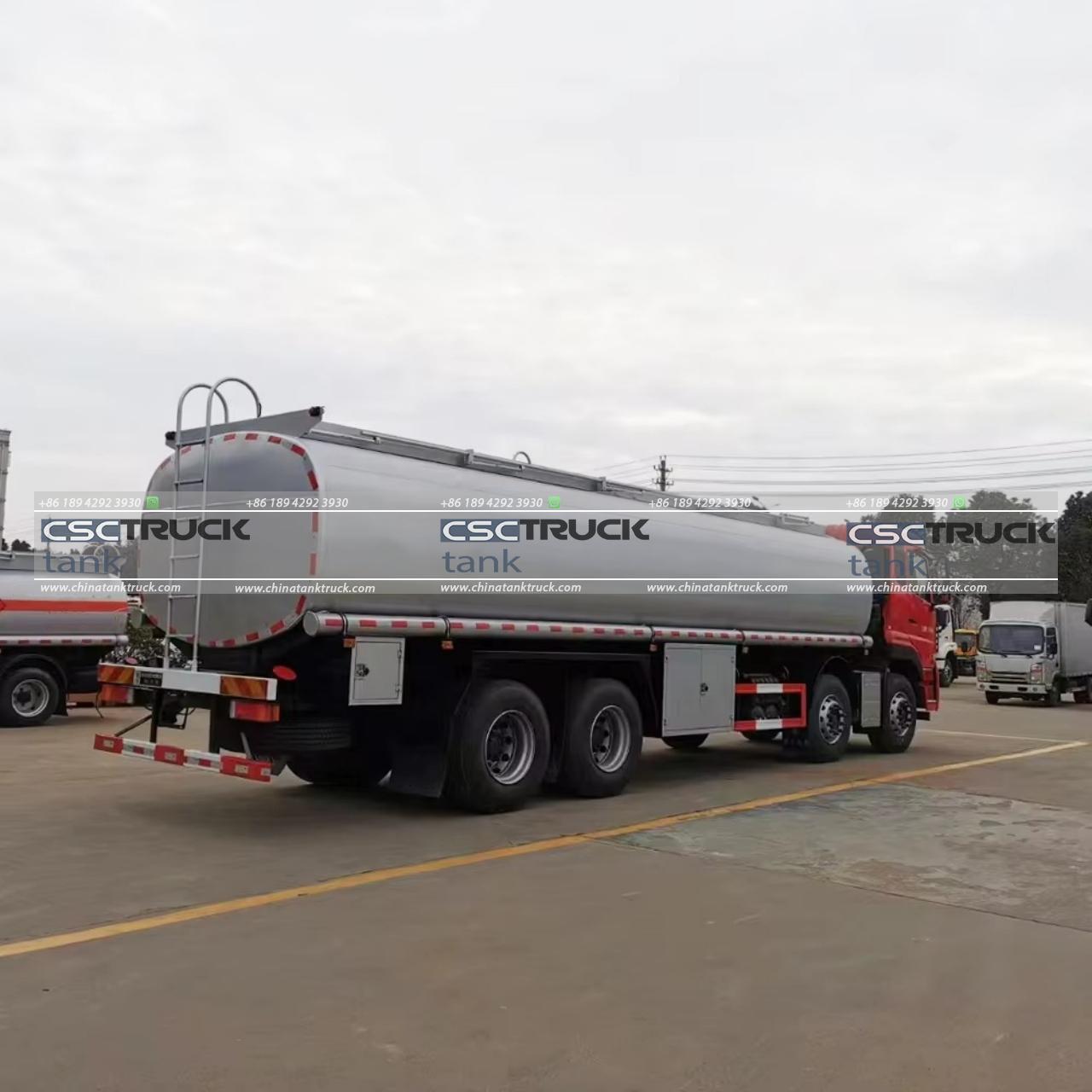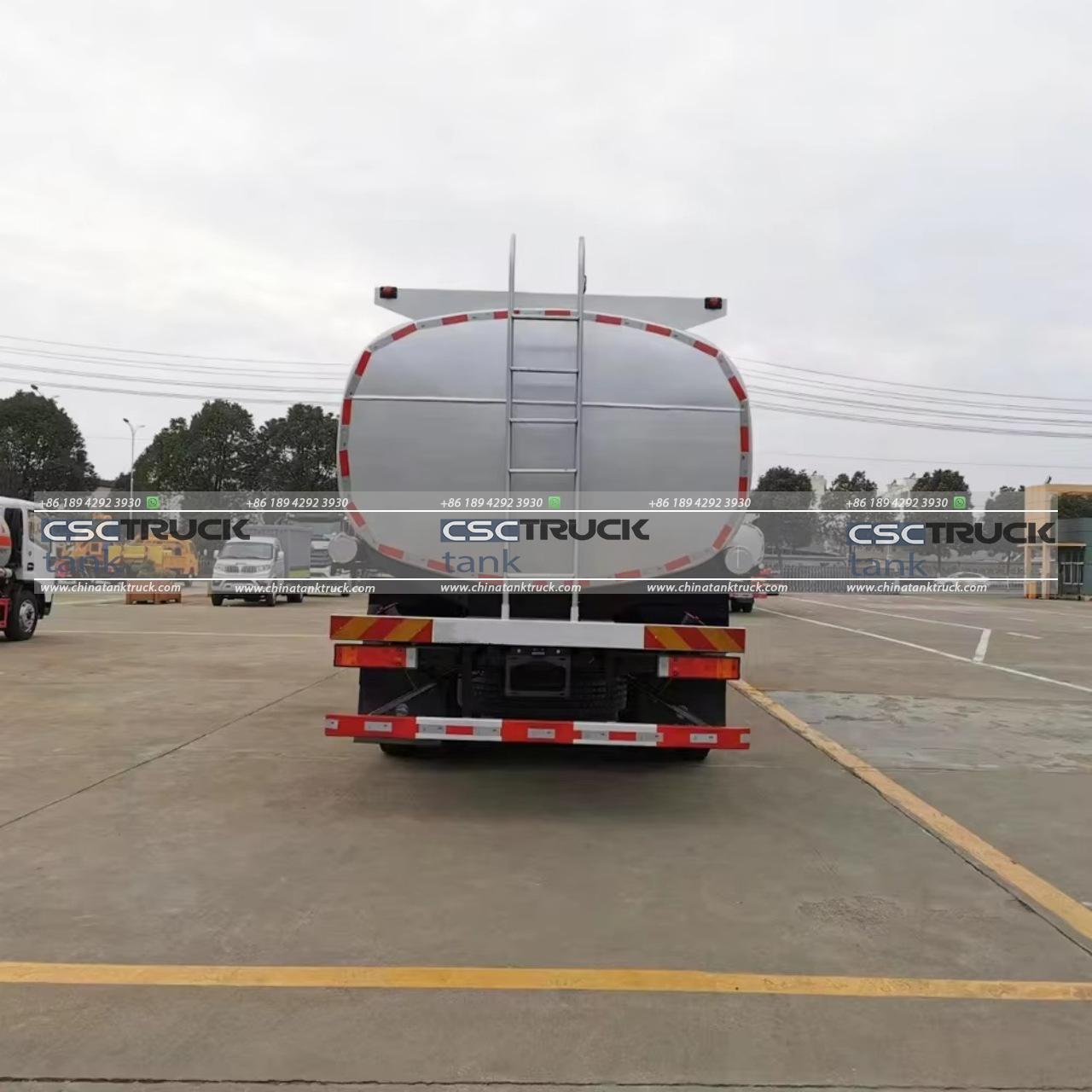What is a Chemical Tanker Truck?
Chemical tanker trucks play a crucial role in the transportation of hazardous and non-hazardous liquids, ensuring that industries around the world can operate smoothly. These specialized vehicles are designed to safely transport chemicals from manufacturing plants to various destinations, including factories, warehouses, and processing facilities. In this article, we will explore the design, functionality, types, safety features, and regulations associated with chemical tanker trucks, providing a comprehensive overview of their importance in the modern industrial landscape.
Design and Structure of a Chemical Tanker Truck
A chemical tanker truck is specifically engineered to handle the unique challenges posed by transporting chemicals. The design and structure of these trucks are dictated by the nature of the chemicals they carry, which can range from corrosive acids to flammable liquids. The key components of a chemical tanker truck include the tank, chassis, piping system, and safety features.
1. Tank: The tank is the most critical component of a chemical tanker truck. It is typically made of stainless steel, aluminum, or carbon steel, depending on the type of chemical being transported. Stainless steel is often preferred due to its corrosion resistance, making it ideal for carrying aggressive chemicals. The tank is usually cylindrical, with a smooth interior to prevent the buildup of residues and facilitate easy cleaning.
2. Chassis: The chassis provides the structural support for the tank and houses the vehicle’s engine, transmission, and other mechanical components. It is designed to withstand the weight of the tank and its contents while maintaining stability during transportation.
3. Piping System: The piping system connects the tank to the loading and unloading points. It is equipped with valves, pumps, and hoses to control the flow of chemicals in and out of the tank. The piping is often made from corrosion-resistant materials and is carefully sealed to prevent leaks.
4. Safety Features: Given the hazardous nature of the chemicals transported, chemical tanker trucks are equipped with a range of safety features. These include pressure relief valves to prevent over-pressurization, grounding, and bonding systems to prevent static discharge, and emergency shut-off valves. Additionally, the tanks are often fitted with insulation and heating systems to maintain the chemicals at the required temperature during transit.

Types of Chemical Tanker Trucks
Chemical tanker trucks come in various types, each designed for specific applications. The choice of tanker depends on the chemical properties, such as volatility, corrosiveness, and temperature sensitivity.
1. Stainless Steel Tankers: These are the most common type of chemical tanker trucks and are used to transport a wide range of chemicals, including acids, alcohols, and oils. Stainless steel’s high resistance to corrosion and its ability to withstand high temperatures make it suitable for transporting aggressive chemicals.
2. Aluminum Tankers: Aluminum tankers are lighter than stainless steel tankers and are often used to transport less corrosive chemicals. They are ideal for transporting large volumes of chemicals over long distances due to their lower weight, which improves fuel efficiency.
3. Lined Tankers: For highly corrosive chemicals, such as hydrochloric acid, tanker trucks with specialized linings are used. The lining, typically made from materials like rubber or plastic, acts as a barrier between the chemical and the tank’s metal structure, preventing corrosion and chemical reactions.
4. Multi-compartment Tankers: Some chemical tanker trucks are divided into multiple compartments, allowing them to carry different chemicals simultaneously without the risk of mixing. This is particularly useful for delivering chemicals to various destinations on a single trip.
Safety Considerations in Chemical Transportation
Transporting chemicals poses significant safety risks, both to the driver and to the environment. Therefore, chemical tanker trucks are subject to stringent safety regulations and best practices designed to minimize the potential for accidents.
1. Loading and Unloading Procedures: Loading and unloading chemicals is one of the most critical phases of transportation. Proper procedures must be followed to prevent spills, leaks, and exposure to hazardous chemicals. This includes using the correct hoses and connections, grounding the vehicle to prevent static discharge, and wearing appropriate personal protective equipment (PPE).
2. Driver Training: Drivers of chemical tanker trucks must undergo specialized training to handle the complexities of transporting hazardous materials. This training includes understanding the properties of the chemicals being transported, emergency response procedures, and safe driving practices.
3. Regulatory Compliance: Chemical tanker trucks are subject to a wide range of regulations, including those set by the Department of Transportation (DOT), the Environmental Protection Agency (EPA), and the Occupational Safety and Health Administration (OSHA). These regulations cover everything from the design and maintenance of the tanker to the training and certification of drivers.
4. Emergency Response Preparedness: In the event of an accident or spill, quick and effective response is critical to minimize the impact on human health and the environment. Chemical tanker trucks are often equipped with spill kits, fire extinguishers, and emergency shutdown systems. Drivers are also trained to assess the situation and take appropriate action, such as contacting emergency services and evacuating the area.

The Importance of Chemical Tanker Trucks in the Industry
Chemical tanker trucks are indispensable to a wide range of industries, including chemical manufacturing, pharmaceuticals, agriculture, and oil and gas. These industries rely on the efficient and safe transportation of chemicals to sustain their operations.
1. Chemical Manufacturing: Chemical tanker trucks are essential for transporting raw materials and finished products between manufacturing plants and distribution centers. This ensures a steady supply of chemicals for various industrial processes.
2. Pharmaceuticals: The pharmaceutical industry depends on chemical tanker trucks to transport bulk chemicals used in drug manufacturing. The safe and timely delivery of these chemicals is crucial for maintaining production schedules and ensuring the availability of life-saving medications.
3. Agriculture: In agriculture, chemical tanker trucks are used to transport fertilizers, pesticides, and other agricultural chemicals to farms and distribution points. These chemicals play a vital role in crop production and food security.
4. Oil and Gas: The oil and gas industry uses chemical tanker trucks to transport a wide range of chemicals, including drilling fluids, lubricants, and fuel additives. These chemicals are critical for exploration, production, and refining processes.
Conclusion
Chemical tanker trucks are specialized vehicles designed to safely transport a wide range of chemicals, from corrosive acids to flammable liquids. Their design, safety features, and the rigorous training required for their operation reflect the importance of ensuring the safe and efficient transportation of hazardous materials. As industries continue to evolve and demand for chemicals grows, chemical tanker trucks will remain a vital component of the global supply chain, enabling the safe and reliable movement of essential materials across the world.


